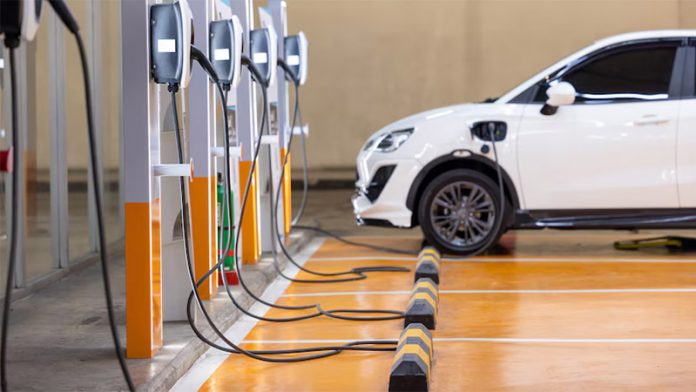MUMBAI, Jul 2 : The gap in demand for electric vehicles between large and mid-sized cities in the country is shrinking and the Tier-II 2 cities are likely to emerge as the next big demand centre for EVs, a report said on Tuesday.
An analysis of the electric two-wheeler and car sales by strategic research provider BloombergNEF (BNEF) from 207 cities across 10 states also suggests that the electric two-wheeler sales in some tier 2 markets have surpassed metropolitans while within tier 2 cities, state capitals generally leading the growth in electric car sales.
India’s electric vehicle sales are growing rapidly but vary considerably across the country’s 36 states and union territories. While wealthier, populous and more developed tier 1 cities are the current hubs of India’s EV demand, adoption in tier 2 cities is growing, BloombergNEF said in its report.
The states covered under the report include Delhi, Gujarat, Haryana, Karnataka, Kerala, Madhya Pradesh, Maharashtra, Rajasthan, Tamil Nadu and Uttar Pradesh.
A potentially large auto market and the expansion strategies of EV makers could make these tier 2 cities the next big demand centre for EVs while in smaller cities with limited awareness and disposable income, policy support will be crucial in amplifying EV sales, it said.
According to the report, Karnataka capital Bengaluru is ahead of other tier 1 cities in EV adoption both in the passenger vehicle and two-wheeler segments with the EV growth in the wealthier cities being driven by several factors, such as a young demographic with regular disposable income, the expanding presence of pure-play EV cab operators and increasing availability of EV models to choose from.
On the other hand, Rajasthan’s capital Jaipur accounted for more than 79 per cent of all electric cars sold in the state’s five tier 2 cities that were analysed. Consumers in Jaipur bought more than 2,400 electric cars in 2023, more than doubling from the less than 1,000 vehicles sold a year earlier, it said.
Similarly, UP capital city Lucknow led the state’s stellar sales growth in 2023, with demand reaching 1,120 units while Kerala’s capital Thiruvananthapuram was at the forefront of sales numbers in the state with 840 electric cars sold and Gurugram, a fast-growing city that shares a border with the national capital Delhi, saw nearly 1,570 electric cars getting sold in 2023, it said.
Noting that most of India’s tier 2 cities do not have a robust EV ride-hailing market yet which is a key pillar of rising EV sales in tier 1 cities, the report said that this means EV sales in smaller cities are entirely driven by private uptake.
Most private electric cars purchased in 2023 were not supported by upfront price subsidies. Just two out of the top 10 states for annual electric car sales had active subsidies as of the end of 2023. Even after several states exhausted their subsidy limit by the middle of the year, sales continued to hold steady, as per the report.
Stating that the annual growth rates of high-speed electric two-wheeler sales in tier 2 and tier 3 cities across the 10 states surpassed those in tier 1 cities, it said that In 2023, the annual rate of increase of total EVs sold in 70 tier 2 cities and 131 tier 3 cities was 51 per cent and 30 per cent respectively.
Electric two-wheeler markets in several tier 2 cities are far ahead of those in tier 1 cities. In 2023, electric two-wheelers sold in Surat (20,150 vehicles) and Jaipur (18,600) exceeded those in Ahmedabad (17,300), Mumbai (13,800) and Chennai (13,710) while the sales in Nagpur (13,730) were close to those in the state capital, Mumbai, it said.
Kolhapur and Indore are also quickly catching up, with sales reaching 9,320 and 9,200 vehicles, respectively, in 2023, as per the report.
Tier 2 cities could be the next growth drivers for electric two-wheelers, but financial support is crucial in tier 3 cities, Bloomberg NEF said.
In 2023, the growth rate of the two-wheeler market in tier 2 cities was similar to that in tier 1. Automakers are rapidly expanding their sales and dealership networks in smaller cities, which will help improve consumer awareness and access to these vehicles, it said.
As the focus shifts to boosting demand from less affluent tier 3 cities, demand-side policy support, especially financial subsidies, will be needed unless prices fall fast enough for EVs to achieve upfront cost parity with gasoline vehicles, the report stated. (PTI)


